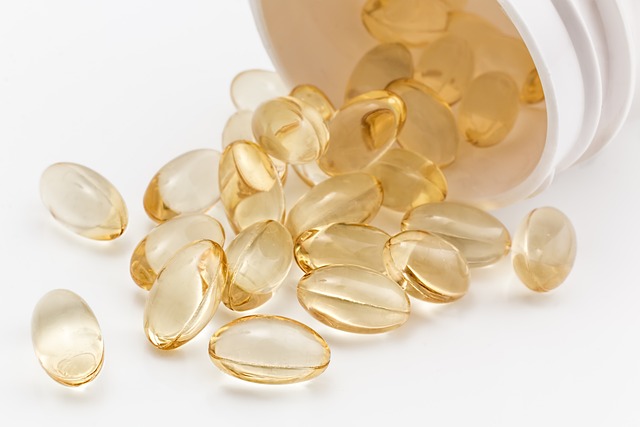Could a functional medicine approach offer a valuable contribution to managing Long Covid symptoms?
Long Covid has become a difficult reality for 1.9 million people in the UK (around 1 in every 35 people), and is currently estimated to affect at least 65 million people worldwide. Due to undocumented infections, the true number affected may be significantly higher than reported, with prevalence likely growing with new infections. It is thought that of those who catch Covid-19 and who are vaccinated, 10-12% may go on to develop Long Covid. Of those who are hospitalised during their initial infection, the estimated prevalence is even higher. In April 2023, The World Health Organisation stated that an estimated 1 in every 10 infections results in ‘Post Covid Condition’.
There is also evidence to suggest that infections are cumulative in terms of risk, meaning that greater the number of Covid-19 reinfections a person accumulates, the greater the risk of Long Covid. Long Covid has been estimated as costing UK workers £1.5bn a year in lost earnings. In the US, the economic cost of Long Covid has been estimated at $3.7 trillion.
What is Long COVID?
Despite widespread prevalence, there is currently no universal definition of Long Covid. The CDC describes Long Covid / ‘post COVID conditions‘ as follows:
Long COVID is broadly defined as signs, symptoms, and conditions that continue or develop after initial COVID-19 or SARS-CoV-2 infection. The signs, symptoms, and conditions are present four weeks or more after the initial phase of infection; may be multisystemic; and may present with a relapsing– remitting pattern and progression or worsening over time, with the possibility of severe and life-threatening events even months or years after infection. Long COVID is not one condition. It represents many potentially overlapping entities, likely with different biological causes and different sets of risk factors and outcomes.
The term ‘Post COVID conditions’ also incorporates other conditions that may be triggered by a Covid infection, including stroke, heart attack, autoimmune disease, and diabetes.
In the UK, the NICE definition of Long Covid as ‘post COVID-19 syndrome’ is broadly in line with the CDC definition, except that symptoms be present for at least 12 weeks following infection. The World Health Organization echo this with their definition of ‘post COVID condition‘.
Symptoms described by patients experiencing Long Covid include extreme fatigue, shortness of breath, palpitations, post exercise symptom exacerbation, neurocognitive dysfunction (‘brain fog’), gastro-intestinal disturbance, dizziness, loss of sense of taste / smell, allergic type symptoms, poor sleep, and joint and muscle pain.
Who is most at risk?

Anyone can potentially develop long Covid after a Covid-19 illness, and every infection with Covid-19 carries a risk of developing Long Covid. It is also possible (and likely, in the growing absence of public health mitigations), that reinfection will occur. Each time a person is infected or reinfected with SARS-CoV-2, they have a risk of developing Long Covid.
Although severe initial illness increases the risk, the majority of those living with Long Covid actually experienced a mild initial infection. Studies have shown that those at increased risk of developing Long Covid may include women, those with underlying health conditions, more severe baseline infection, and those who are unvaccinated. The best and most effective way to reduce the risk of Long Covid, is to take precautions to prevent Covid-19 infection, wherever possible. These include optimising indoor ventilation (plus monitoring air quality with CO2 monitors), air filtration (HEPA), and avoidance of poorly ventilated and especially crowded indoor spaces, or effective protection with FFP2/3 masks if avoidance not possible. While vaccination doesn’t reduce the risk of catching Covid-19, it does reduce the risk of severe acute illness, and evidence to date suggests it reduces the risk of developing Long Covid if infected.
I have long covid. What can I do now?
As is always the case with any new onset symptoms of concern, the best advice in the first instance is to be seen by your GP. Depending on the nature and duration of your symptoms and the body system/s affected, they may refer on to the appropriate specialist team as necessary for medical management.
The next key issue while medical management ongoing, is the risk associated with reinfection. Reinfection with Covid-19 may lead to worsening of Long Covid symptoms for as many as 80% of those with pre-existing Long Covid. As severe Long Covid can lead to long term sickness, with subsequent effects on finances and livelihoods, this is not a risk to be taken lightly. Covid-19 infection is not ‘mild’ in the long term.
Because the SARS-CoV-2 virus is transmitted predominantly via the airborne route, reducing reinfection risk means attention to ventilation, air filtration, quality masking when sharing indoor air (FFP2/N95 or FFP3/N99), meeting outdoors where possible, and appropriate use of testing. It also means staying up to date with booster vaccinations offered.
If you are currently struggling with ongoing Long Covid symptoms, here are some tips for optimising health during the recovery process:
Nutrition

The most powerful change you can make to your diet is to reduce ultra processed foods (industrial formulations typically containing five or more ingredients), and replace with a balance of whole foods from each of the following groups: Plant/animal proteins, healthy fats (eg olive oil, oily fish, avocado, nuts & seeds, eggs), fruit & vegetables, and wholegrains. The British Association for Nutrition and Lifestyle Medicine have produced a helpful poster entitled, ‘The Wellness Solution‘, incorporating the essential elements of a whole-food diet. Don’t forget to supplement with Vitamin D, as recommended by Public Health England. For more tips on nutrients to support the normal functioning of the immune system, see ‘Coronavirus and nutrition: How can we support our immune system?’
Gut health

There is growing evidence to support a connection between the intestinal microbiota and the lungs, known as the gut-lung axis. Gut dysbiosis has been associated with ongoing Long Covid symptoms, and severity of acute Covid-19 infection has been associated with gut microbiome composition.
Human microbiota have long been known to play a vital role in supporting and modulating the immune system, along with other important roles including support of gut motility, nutritional status, insulin sensitivity, and metabolism. SARS-CoV-2 has been detected in the gastrointestinal tract and faecal samples of Covid-19 patients, highlighting the importance of a robust microbiome in its immune defense.
A 2021 randomised controlled trial (RCT) examined the administration of a probiotic containing several strains of Lactiplantibacillus plantarum and Pediococcus acidilactici to symptomatic outpatients with Long Covid, for 30 days. The probiotic was well tolerated. The results showed a number of positive outcomes in favour of the probiotic, including reduced symptoms and reduced nasopharyngeal viral load, further supporting the role of the gut microbiome in Covid-19 immune system modulation and suggesting a need for further research in this area.
More recently, a further RCT involving administration of a synbiotic to patients with Long Covid, showed that the patient group who received the synbiotic experienced significantly greater levels of alleviation in a number of symptoms, including fatigue, digestive symptoms, and poor concentration, versus those who received the placebo.
Supplementation

While there is currently a paucity of trial evidence or data to support the use of supplementation specifically for Long Covid treatment, people experiencing Long Covid symptoms have reported anecdotal improvement with supplementation of a number of micronutrients and antioxidants*, including the following. Some of this may be explained in part due to pre-existing micronutrient intake deficiencies.
- Omega-3
- Zinc
- Selenium
- Vitamin B12
- Vitamin B3 (Niacin)
- Vitamin D
- N-acetyl cysteine
- Coenzyme Q10
Sleep

Disturbed sleep is a common symptom of Long Covid. You may also find you need more sleep than you used to. There a a number of ways to optimise the potential for restful sleep during your window of sleep time, including:
- Minimise or avoid caffeine and alcohol
- Avoid screens for 1-2 hours before bed
- Finish eating 3 hours prior to sleep
- Turn down the lighting at least 15 minutes before going to bed
- Use blackout blinds to minimise light disruption
- Avoid sleeping within 8 feet of electromagnetic fields where possible
Stress management

Long Covid reduces stress tolerance, meaning you are less likely to be able to manage the stressors you previously could. Stress may also worsen or exacerbate Long Covid symptoms. The vagus nerve – which supports the ‘rest and digest’ state of the autonomic nervous system, has been shown to become dysfunctional and inflamed following Covid-19 infection, suggesting this may play a role in the dysautonomia type symptoms often experienced in Long Covid. Tips for management include:
- Breathwork: Helps reduce the hyperventilation often asssociation with fight or flight states, which result in low blood carbon dioxide levels. Suggested methods to try include coherence breathing, box breathing, and 4-7-8 breathing.
- Meditation: Helps with reducing incoming sensory stimuli perceived by the brain, thereby reducing perceived environmental stressors. Meditation apps are a great way to start, including Calm, Headspace, and Insight Timer.
- Use your spoons wisely: Based on the concept of The Spoon Theory, by Christine Miserandino, you only have a limited and reduced amount of energy (‘spoons’) available to you each day. Choose how you use your spoons wisely.
- Relaxation therapies: Relaxation therapies such as massage and reflexology are a great way of inducing the ‘rest and digest’ state, whilst massage has the additional benefit of alleviating stress-associated muscle tension.
Exercise (caution!)

Unfortunately with Long Covid, the usual advice about gentle exercise in rehabilitation no longer applies. The concept of gradually increasing activity levels, otherwise known as graded exercise therapy or ‘GET’, could result in symptoms getting worse, as recently reported by researchers at the University of Leeds.
Instead, a pacing strategy is now recommended, such that activity is only extended as far as to not exacerbate symptoms or lead to post-exertional malaise. It centres on avoiding doing ‘too much’ on good days, which can lead to a boom and bust cycle of energy levels. Leeds NHS Trust have produced a helpful patient information booklet, which contains more information on pacing, as well as other aspects of Long Covid management.
It is important to also be aware that any activity that leads to chest pain, palpitations/ racing heart, shortness of breath or dizziness/collapse, warrants emergency attention.
Emotional Support

Long Covid is very much a physical condition. However, the effects it can have on quality of life take their toll psychologically, and Long Covid may be associated with increased risk of depression.
If you feel as though you’re struggling with your mental health, provided you are registered with a GP, it is possible to self-refer for NHS talk therapies via IAPT (Improving Access to Psychological Therapies). Seek support sooner rather than later.
Seeking community and sharing your experiences through support groups can help. There are now a number of well-established and growing Long Covid online support groups, including Long Covid SOS, Long Covid Support UK, and Long Covid Kids.
Unfortunately, Covid-19 prevalence is high in the UK, with updated prevalence figures post March 2023 awaited. While Covid-19 may have become a milder acute illness for most (though not all – clinically vulnerable groups are still at significantly higher risk of severe illness and death from acute infection), the long term harms of recurrent reinfection are steadily accumulating in the medical literature. While there are many options to aid in management of Long Covid, there is currently no known cure. The best prevention for Long Covid, is to avoid Covid-19 infection in the first place. Key in management of Long Covid, is to avoid reinfection. This means attention to indoor air quality (ventilation, HEPA air filtration), quality masking when sharing indoor air (FFP2/N95 or FFP3/N99), distancing, isolating/masking whilst infectious, and appropriate use of testing. It also means staying up to date with booster vaccinations offered.
Disclaimer
*This post is not a substitute for professional medical advice, diagnosis or treatment. For individual nutrition or medical advice, please consult individually with a registered nutritionist or registered medical practitioner.

